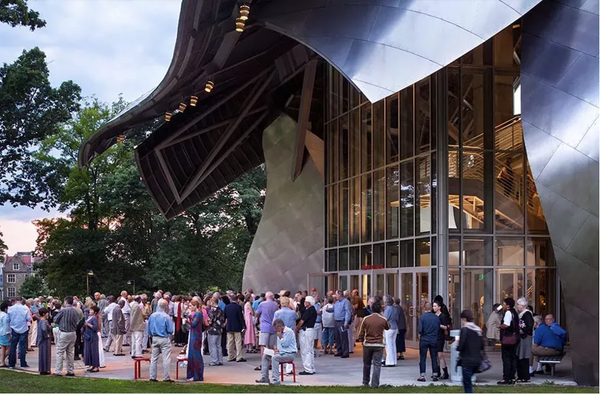Bard SummerScape Announces Summer 2025 Line-up
The vibrant, annual slate of performances keeps the summer alive at the Fisher Center in Northern Dutchess.

The vibrant, annual slate of performances keeps the summer alive at the Fisher Center in Northern Dutchess.

Bard SummerScape returns this year to once again make its case as the region’s most ambitious, genre-spanning, highbrow-meets-lowbrow festival of the arts. From June 27 to August 17, the Fisher Center at Bard will be abuzz with opera, dance, music, and Spiegeltent revelry, headlined by a Czech rarity, a Beethoven reimagination, and a deep dive into the mercurial music of Bohuslav Martinů.
The annual festival, a “hotbed of intellectual and aesthetic adventure” according to the New York Times, kicks off with the world premiere of Pastoral, a collaboration between choreographer Pam Tanowitz, composer Caroline Shaw, and painter Sarah Crowner (June 27–29). This marks Tanowitz’s fourth SummerScape commission, following "Four Quartets," "I was waiting for the echo of a better day," and "Song of Songs"—each met with critical acclaim and extended life beyond Bard. With "Pastoral," Tanowitz and company turn their attention to Beethoven’s Symphony No. 6, a work synonymous with the Romantic ideal of nature, and subject it to their singular lens. Expect abstraction, reverence, deconstruction, and reinvention in equal measure.
Later in the season, SummerScape serves up the first fully staged American production of Bedřich Smetana’s "Dalibor" (July 25–August 3). If you’ve never heard of "Dalibor," you’re not alone—it’s an opera that’s been largely overshadowed by Smetana’s symphonic poems and "The Bartered Bride." But Bard has built its reputation on reviving overlooked masterpieces, and with conductor Leon Botstein at the helm of the American Symphony Orchestra and director Jean-Romain Vesperini (who mounted "Henri VIII" at Bard in 2023), this production is poised to make a compelling case for the 1868 opera’s belated recognition. The work follows a rebellious knight who finds himself imprisoned for aiding a peasant uprising, offering political intrigue, a tragic love story, and Smetana’s soaring, folk-inflected melodies.